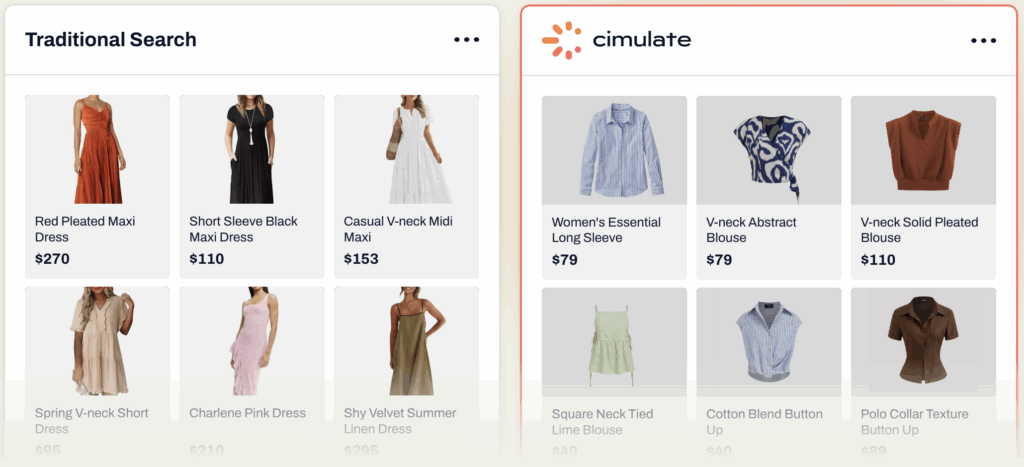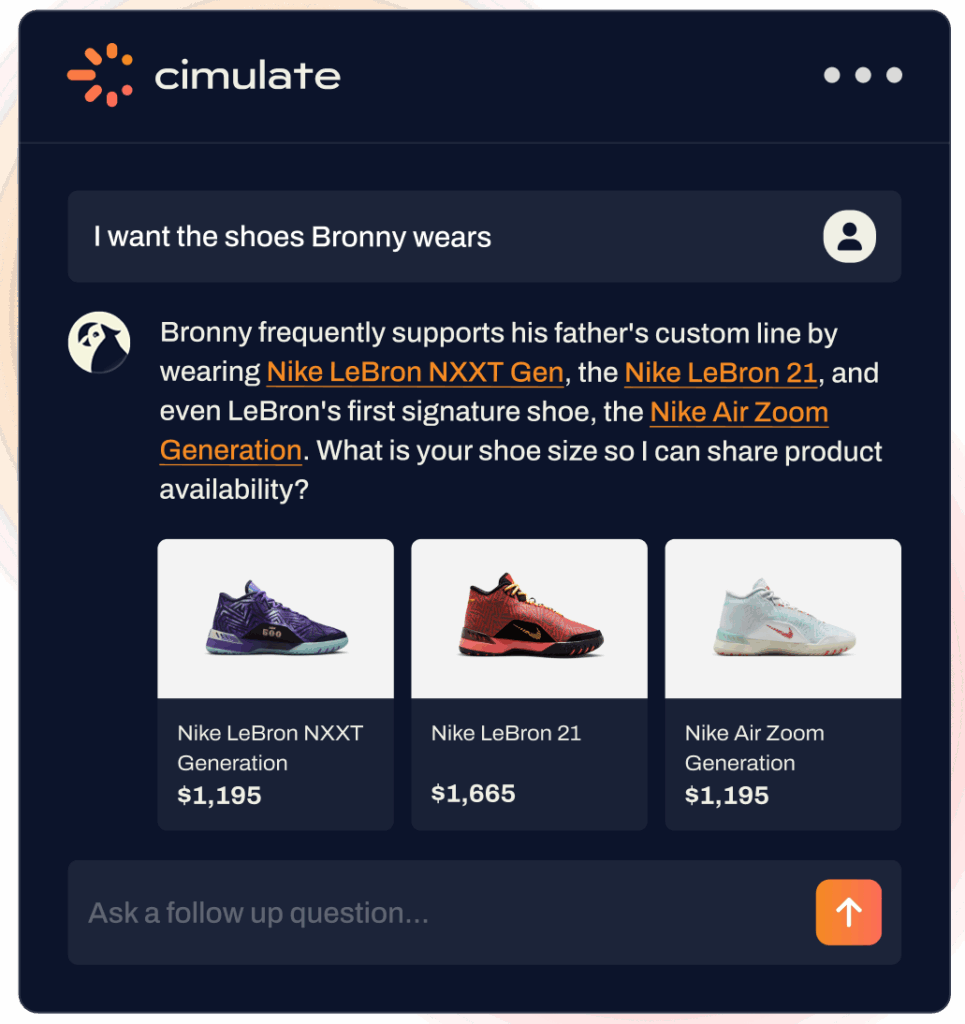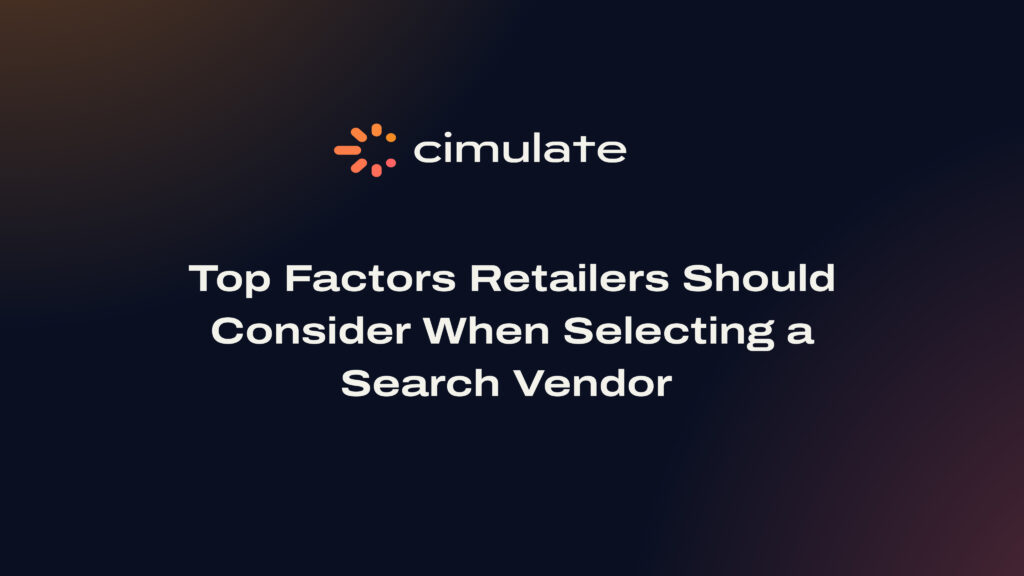In retail ecommerce, search is more than just a website tool. It’s the gateway to product discovery, conversion, and loyal customers. A great search experience can drive higher engagement, increase order value, and make your customers feel understood. In fact, statistics show that shoppers who use site search can convert at rates up to 50% higher than the average shopper. Since search is such a crucial aspect, selecting a search vendor is a critical decision. Here is a guide to the top considerations when choosing a search solution.
1. Core Search Functionality
Your search vendor should deliver relevant results with their core search feature. It is the foundational element of the platform.
- Are their search results accurate? Your customers want search to understand what they mean and not have to type the exact keywords to get the results they want. A search platform should be able to handle misspellings, synonyms, and conversational language.
- Is their search fast and scalable? Slow search results can make your customers frustrated, causing you to lose sales. Ensure this platform doesn’t have delays even on high traffic days.
- Are there advanced search features? Features like filters, sorting, and recommendations enable your shoppers to quickly find exactly what they want.

2. Personalization and AI Capabilities
Today’s search landscape has drastically changed, and the increased popularity of AI agents for product research and discovery means that the expectations of consumers have changed as well. Shoppers expect personalized experiences and results that truly match their needs.
- Can their search understand context? Modern shoppers want to search for exactly what they want in natural language, rather than come up with a few keywords that are supposed to express their needs. If the search solution can process long-form natural language, it can best respond to that explicit signal with the right contextual results.
- Do they have AI-driven recommendations? Personalized suggestions based on search history and previous purchases boost conversions.
- Does the search provider have a conversational commerce capability? Consumers are conducting more of their initial research in AI engines, like Claude and ChatGPT, and brands that can reach customers where they are will come out ahead. And it’s also important that brands offer their own conversational capabilities within their search experience to cater to this new research & buying pattern which is quickly becoming table stakes.

3. Data and the AI Disadvantage
Data is one of the most valuable aspects to powering great search. How your search vendor helps you use it can determine how your brand competes in the AI era.
- Do they integrate with your current systems? Any platform that you add to your stack should connect seamlessly. Ensure that your search vendor can integrate with your product catalog, CMS, and CRM.
- Do they address the retail data disadvantage? Most retailers don’t have enough data to fuel AI models on their own, but general purpose LLMs are not trained on your products or customers. Look for a search vendor that can bolster your existing data with synthetic data generation that mimics your shoppers’ behavior.
- Can they expose your products to AI Agents? Your products should be discoverable on both your site and in AI engines. The right search vendor will expose your product data to AI agents. Look for features like Model Context Protocol (MCP) Servers, and newly emerging Agentic Commerce Protocol (ACP) Servers which will set retailers & brands up for purchasing made directly from answer engines.
- Do they provide comprehensive analytics and insights? Search data helps you understand what customers are looking for and what they are purchasing.
4. Cost and ROI
A search vendor is a big investment, but a critical one. Make sure your solution is worth the resources.
- What is their pricing model? Understand their usage pricing and any additional costs.
- Do they have implementation costs? Review setup fees, integration, and any add-ons you need.
- What is the expected ROI? Consider the impact on your conversion rates, clicks per visit, and transactions per user.
Search is a Strategic Decision
Search functionality can affect ecommerce revenue, site visits, and customer retention, which makes it a critical decision for your business. Core search, personalization, AI capabilities, data strategy, cost, and ROI are all important factors to consider to evaluate to ensure your solution meets today’s needs and can scale with the evolving ecommerce landscape.
At Cimulate, we power smarter search to deliver stronger sales. Our CommerceGPT is purpose-built for commerce, combining advanced AI, contextual understanding, and synthetic data generation to deliver highly relevant, personalized shopping experiences. We help brands move beyond keyword-based systems, making their products more discoverable across digital experiences and AI agents alike, all while staying at the forefront of retail. Want to learn more about how we can power your brand’s search? Request a demo today.

